- Home
- Diana Wynne Jones
The Merlin Conspiracy Page 25
The Merlin Conspiracy Read online
Page 25
I didn’t want to talk about it, so I said, “Grundo?”
Grundo explained about the invisible beings in the Regalia.
“Hmm,” said Mrs. Candace. “Oh, dear.” A plate of cake came up beside her and jiggled invitingly. “Thank you,” she said carefully as she took a slice. “I do make a point of thanking them,” she said to Grundo, “though it’s not always easy to know how to reward them. There are, however, quite a number of minor magicians who treat their captive folk very badly. And I assure you, I had no idea that the Dimbers didn’t know they were using them. I see I must start looking into all that. But there is more,” she added, looking at me.
I nodded and, once again, tried to explain what Sybil, Sir James, and the Merlin had done.
Mrs. Candace listened attentively, with her head gracefully bent, and I had real hopes that she believed me until she said, “Ah, no. You can’t have it right, my dear. This Merlin is very new and young, so new that I haven’t met him yet, but he’d be simply incapable of the kind of treason you describe. If he was capable of it, he wouldn’t be the Merlin, do you see? I think you must have misunderstood some new idea of his.”
“The Little Person believed I was right,” I said despairingly. I knew I had to make Mrs. Candace understand. She was the one who counterbalanced the Merlin. “He took it very seriously, and he advised me to raise the land.”
“On no account!” Mrs. Candace said sharply. “What a thing to suggest! I’m surprised he even mentioned it. The Little People are usually so wise, though they can be mischievous. Perhaps this one was or perhaps he didn’t realize you were only a child. You see, my dear,” she went on, leaning forward and staring earnestly at me with her enormous almond-shaped pale green eyes, “the magic of Blest is most intricately interlaced with itself—the hugely old, the old, and the newer and the most recent—so that each part supports all the others. What you’re suggesting is pulling up the very foundations. This would make it all come loose or perhaps even blow it apart. And we can’t have that because Blest magic keeps the magics of several hundred surrounding worlds in their right places. Do you see?”
“But if Blest magic went all rotten—” I began.
“Oh, I grant you,” she said. “If that happened. But it hasn’t. Unless somebody was superhumanly clever at keeping it from me, I’d know. I can feel there’s nothing wrong.”
The far-speaker on the table beside her chair began warbling for attention. Salisbury nodded at it and spoke for the first time, in a gently rumbling voice, like bricks grating. “I got through to London at last.”
Mrs. Candace smiled sweetly at him and picked up the speaker. “Hallo, is that Maxwell Hyde? … Oh, it’s Dora, is it? Is Mr. Hyde there? … Well, tell him as soon as he comes in that I’ve got his granddaughter here with me and I’m proposing to send her … Yes, Arianrhod, and she has a friend with her, Ambrose Temple … No, no, just tell him they’ll be with you this evening. Salisbury’s going to see to it now. Nothing to worry about.”
She put the speaker down and smiled. “There, that’s all sorted out.”
It wasn’t, but she was not to know that.
9
NICK
ONE
I couldn’t get over the way my father let me go to Blest with Maxwell Hyde. Dad was still in the London hotel when we got back—me pulling Maxwell Hyde and Maxwell Hyde keeping up a long, grumbling moan about how much he hated the dark paths. The people from the conference had left days ago, but Dad said he’d had to stay because he’d lost his front-door key again. He took it quite philosophically when I explained that my key was still in the police station in Loggia City and just said that he’d phone a locksmith from the hotel.
See what I mean? In the normal way, Dad falls over his own brain not to admit that anything supernatural can happen. It must be his defense against all those demons he writes about. But now he not only admitted the existence of other worlds and a Magid who lived in one of them, but let me go there with him.
“That man Hyde cost me over two hundred quid, getting him drunk enough to go and find you,” he said to me. “Let him teach you a few tricks. I want some return for my money.”
I knew this was Dad’s way of telling me he’d been worried sick when I suddenly disappeared from beside him in the hotel corridor. I was quite touched. I was still in a state of shock about it after he’d bought me some extra clothes and Maxwell Hyde gripped me by one arm and walked downhill into Blest with me.
Going between worlds the way Magids do it means walking down a hill that is mostly grass, with patches of tarmac and misty bits every so often. Each misty bit seems to be between other worlds. I looked sideways along the grassy stretches and saw that the dark paths led away there in all sorts of directions. I was very interested, but Maxwell Hyde didn’t seem to know the paths were there.
Then we stepped onto tarmac again in front of Maxwell Hyde’s London house, and I was very excited and nervous for a moment. Now we’re going to meet Roddy! I thought, and the prospect of all those foreign politics made me feel a bit sick. But Roddy wasn’t there. We were in a street of tall Londonish houses that were all much smarter and better painted than any London houses I knew.
“That’s because no one knows when the King is going to turn up and see them,” Maxwell Hyde explained as he unlocked his own glistening green front door. “The Council sends you an order to redecorate if they think you’re getting dingy.”
That struck me as fascist. “Do they tell you what colors to paint it, too?” I asked. It helped to cover up my nervousness.
“No, no,” he said. “They leave that to the owner, though I daresay they’d object if I decided on murals of naked women or some such.”
The London buses in Blest are bright blue. One roared past behind us as we went into the house. They use some kind of fuel that smells quite different from diesel but just as bad.
“Hallo! I’m back! Brought a visitor!” Maxwell Hyde shouted, stamping his feet on the doormat.
It smelled quite different from an Earth house indoors. Sort of spicy. Maxwell Hyde’s daughter and her boy, Toby, hurried down the hall to meet us. The daughter is called Dora. She keeps house for him, and she is quite potty. She dyes her hair bright red and wears layers of colored clothes like a native of Peru, all different patterns and hung all over with dangly beads and stuff. Most of them were charms. Toby was younger than me and seemed quite normal, except that he behaved as if he was frightened. He had this way of hanging about as near as he could get to anyone bigger than him, as if it was safer like that. He was very pale, with almost red hair.
“Oh, you’ve brought an Asian friend!” Dora exclaimed.
A lot of people on Earth think I’m Indian, too, or Greek. It annoys me, but I’m used to it. Maxwell Hyde told Dora firmly that I was from another world, but she didn’t listen. She kept asking me about the exotic magic of the Orient. She was obsessed with Eastern magics.
“Don’t mind her,” Maxwell Hyde told me when Dora had gone off, talking loudly to herself, to find us some lunch. “She’s never got over being turned out of her mother’s house. Sad, really. Wasn’t equipped to cope.”
There wasn’t any lunch. Toby had to be sent out for what they call prettybread. Prettybread is a bit like a fat pizza with onions and things baked into it and frizzled cheese on top. Part of Dora’s dottiness was that she was always forgetting to buy food. She kept having to send Toby out—and me, too, once I got used to the way food was here—to buy cheese or cakes or tea for her. People in Blest drink tea all the time, and they eat cakes with it far more than I am used to. Half the shops are kept by people who look Chinese, selling fat brown packets of tea and sixty kinds of sticky cakes. Coffee has to come from a chocolate shop and is much more expensive.
Luckily, Maxwell Hyde grows vegetables in his back garden. Most people in London do, just as if they lived in the country. This meant that there was nearly always something to eat (though the night there was nothing but beetroot nearly kille
d me). And one of the first things Maxwell Hyde did was to rush out into his garden to see how things were coming on there. He grows dahlias in among other flowers around the lawn near the house and the veg down the other end. The dahlias weren’t up yet, just cabbagey clumps sitting in hard, dry earth, but you wouldn’t believe how proud he was of those clumps. He got a hose and watered them at once.
After lunch he took me into the main room, and with Toby leaning against him and peering under our elbows, he showed me a map of the Islands of Blest. These were—the way everything is in Blest—like and not like what I was used to. Their Islands are almost like the British Isles, but not really quite, as if someone had given the whole lot a big push from the direction of France and then stood on Ireland and pulled so that they stretched. Wales and Cornwall were a lot bigger, and Scotland was not nearly so frilly.
“You’ll find the eastern coast of England has straightened out from your point of view,” Maxwell Hyde remarked. “Higher above sea level here.”
There wasn’t much of Norfolk or Lincolnshire there actually, and Yorkshire seemed rather slender, too, but that was made up for by the south coast being much nearer France, so that the Isle of Wight was one of the Channel Islands. Then I spotted one big difference.
“Don’t you have any railways?” I said.
“What are railways?” Toby asked.
“Trains,” I said. “Chuff-chuff.”
“No, just roads and canals,” Maxwell Hyde said. “Our industrial history is quite different from yours. You never discovered cokale.”
“You what?” I said.
“Cokale. Chuff-chuff,” said Toby, and laughed. That was my fault for taking Toby for a fool. He wasn’t, not by any means, but I’m no good at telling, with people younger than me.
Maxwell Hyde told me all about their different history then, until my head went round. All I really remember is that their King never settled down in one place, but went round in an enormous Progress most of the year. I think this goes back to the fact that Blest has a hundred times more magic than we do. In the old days the King was supposed to keep the magic in the land healthy by visiting every corner of it. These days the Merlin and someone called the Lady of Governance look after the magic for him, but the King still travels.
I suppose I really remember this because Maxwell Hyde happened to say that Roddy traveled with the King, because her parents were part of the Progress, and I thought of what she had said about this Merlin of theirs. It was disappointing to hear that Maxwell Hyde didn’t even know where the King and the rest of them were at that moment.
“What’s the matter?” Maxwell Hyde asked me.
I didn’t want to go on about Roddy. I was embarrassed. So I said quickly, “Those mages. Arnold and them. I think I got them into bad trouble....”
“Oh, the Plantagenate Empire. I remember,” Maxwell Hyde said. “Good thing you reminded me. I’ll go and take a look in a couple of days when we’ve settled down here.”
We settled down almost at once, into a regular routine, and nobody talked about Roddy anymore. I think I was glad. After breakfast every day, as soon as I’d had enough coffee to get my eyes open, Maxwell Hyde gave me lessons in magic. That was terrific. I was really glad to be taught about magic at last, even though so much of it seemed to be just learning rules. I supposed there had to be rules or things wouldn’t work, but after that short talk I’d had with Romanov, I couldn’t help being a bit suspicious—you know, that the rules only applied to a small part of it all, and once I’d learned enough, I’d know that the rules wouldn’t work with the rest.
But I did try to learn the rules. And here was a strange thing about magic. Some things I could do standing on my head, and the other half I didn’t think I’d ever be able to do. There was never any middle ground, no things I could almost do. And it was the same with theory: some of it obvious and the other things I just couldn’t begin to understand. Maxwell Hyde set me exercises in theory to do for the rest of the day, while he went away to his study and rattled away at his laptop thingy, writing a new detective story. Very familiar. My dad does that, too.
I used to sit there chewing Blest’s version of a ballpoint pen and really envying Toby. His school was over for the year, and I could hear him playing outside with the other kids in the street. He was quiet as a mouse indoors, but outside you could hear him for miles. He used to come in all smoothly sweaty, laughing, while I got up from my theory feeling as if I’d put my head through Dora’s coffee mill.
The weather got hotter and hotter, which didn’t make theory any easier. And there was another difficulty, too, that made me wonder if I was as mad as Dora.
“This is becoming a regular drought,” Maxwell Hyde said, anxious about the precious dahlias. “I suppose Daniel knows what he’s doing. It made sense to have fine weather for the King’s meeting with the Pendragon, but if he doesn’t call it off soon, I shall have to have a word with him.”
I was very interested to learn that this Daniel was Maxwell Hyde’s son and Roddy’s father. He was chief weather wizard to the King. Magic ran in that family like anything.
Anyway, it got so hot and dry before long that the streets shimmered. Dora tried to do her father a favor and water the garden for him. She got out the hose and unrolled it. I saw her out of my window, standing pointing the nozzle at a flower bed and muttering away to herself. But no water came out because she’d forgotten to hitch it to a tap. Toby came in from the street and quietly fixed it and turned the tap on. Water came squirting out all over Dora’s shoes. She looked astonished.
That was typical. Toby was always quietly covering up for his mother’s dottiness.
By then my other problem was really bothering me. I kept seeing these transparent creature things drifting about. They were all sorts of shapes. It almost seemed as if the long, thin ones didn’t like the heat and came indoors to get cool. They floated around the bedroom while I was working, where I could only just see them, but there came to be more and more of them every time I looked. The rounder kind seemed to love the heat. They sat in the road in clusters, going gently up and down like people in a swimming pool. The ones with stranger shapes seemed to follow Dora around. This was what really bothered me. They were what she muttered to.
I didn’t dare say a word about them until the morning Maxwell Hyde made another attempt to teach me to raise witchlight. “Slowly,” he said. “Steady. Think of the energy under your breastbone filling your hands with light.”
I almost did it. I almost got it. Then one of the transparent things came bumbling along and sat on my hands instead. I could see others crowding in at me from all sides of the room. I tried to shake the thing loose. “Get off!” I said, flapping my hands. “Get out of it!” Then I know my face went as red as last night’s beetroot supper. “I—I—I …” I went.
“It’s all right,” he said, calmly smiling. “The invisible folk are always attracted to magic working. Take no notice of them.”
“We don’t have them on Earth,” I said defensively.
“Yes, you do,” he said. “I can always see them there, even though I can’t see them here at all on Blest. It seems to work that way. Carry on.”
I tried to carry on, but I’d lost it by then. And I think I was too busy giving relieved looks at the floating creatures to concentrate. I couldn’t help asking, “Why do they like Dora so much?”
“She’s hung with charms. Lives in a stream of half spells, poor girl,” he said. He sighed. “Always trying to prove she’s as good as her sister, Judith, I think. I hoped she’d snap out of it, and she did for a while after Toby was born. Then she got divorced, and that made her as bad as ever.”
Twice a week Dora got dressed up in black and lots of clattering jet beads and an enormous round hat and went out for the evening. The first time I saw her dressed up, she said, “I’m off to my magic circle,” and looked past my left shoulder in her dotty way. “Would you like to come, too, Nick?”
“Not unless you fa
ncy taking all your clothes off and galloping round in a ring,” Maxwell Hyde said, quickly and warningly. Toby looked dreadfully ashamed.
“Er—perhaps not tonight,” I said. “Thanks all the same, Dora.”
“It’s the most releasing and natural experience,” Dora said reproachfully. “You’re like all Orientals: you spend far too much time watching your tummy button. Be liberated. Try it. My group is full of wonderful people.”
“Yes, yes, off you go,” Maxwell Hyde said. And after she had gone, he told me, “You may not believe me, but Dora is the sane one in that group. I’d better look in on them soon. After I’ve had a go at the Plantagenate Empire, I think. They sometimes get up to very silly, harmful stuff.”
He went to see the Plantagenate Empire two days later. He gave Toby and me some money and told Toby to show me London. Then he walked out into the street and vanished beside the bus stop. Toby and I got on a bus at the exact same spot.
TWO
Blest London was quite a bit different because they’d never had the Great Fire. There were thatched cottages in Mayfair, and the parks were all in strange places. Toby and I had great fun, in spite of the baking heat. I told Toby that I didn’t want to see historic buildings, like the Houses of Parliament and so on, and he said we couldn’t anyway because the parliament was in Winchester and not very important in the first place. So we saw the circus that was permanently in Piccadilly, and waxworks that really moved, and their London Bridge that had houses on it and tourist shops. They have the Tower, oddly enough, and a Tower Bridge that opens for shipping, though it doesn’t look anything like ours on our Earth, and lots more boats on the Thames than in our London. Their ice creams taste a lot different.

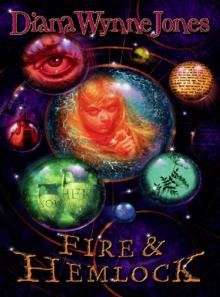 Fire and Hemlock
Fire and Hemlock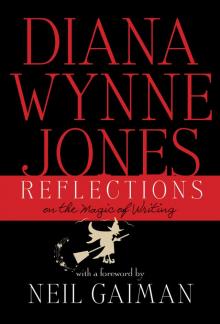 Reflections: On the Magic of Writing
Reflections: On the Magic of Writing The Game
The Game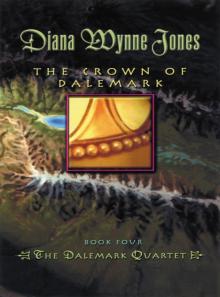 The Crown of Dalemark
The Crown of Dalemark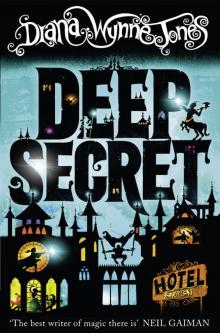 Deep Secret
Deep Secret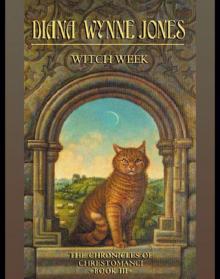 Witch Week
Witch Week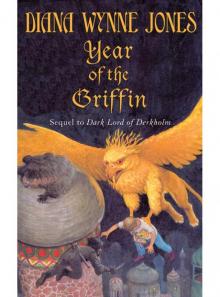 Year of the Griffin
Year of the Griffin Wild Robert
Wild Robert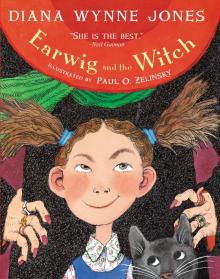 Earwig and the Witch
Earwig and the Witch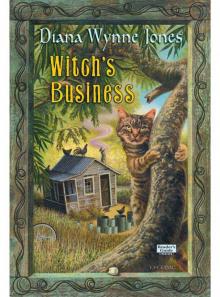 Witch's Business
Witch's Business Dogsbody
Dogsbody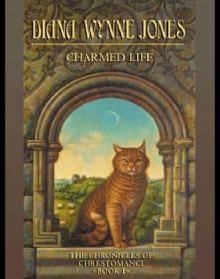 Caribbean Cruising
Caribbean Cruising Cart and Cwidder
Cart and Cwidder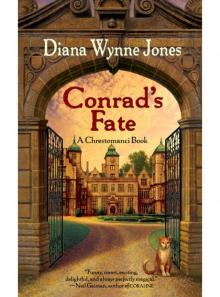 Conrad's Fate
Conrad's Fate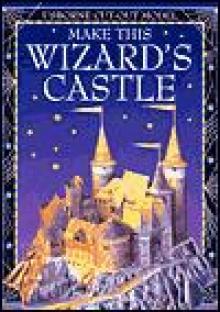 Howl's Moving Castle
Howl's Moving Castle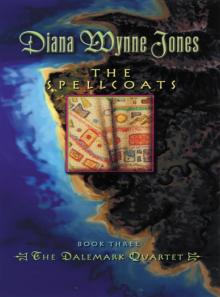 The Spellcoats
The Spellcoats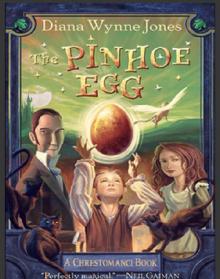 The Pinhoe Egg
The Pinhoe Egg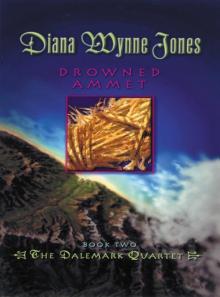 Drowned Ammet
Drowned Ammet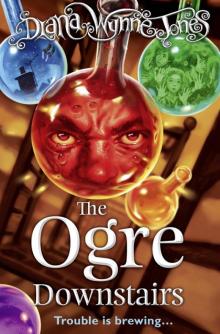 The Ogre Downstairs
The Ogre Downstairs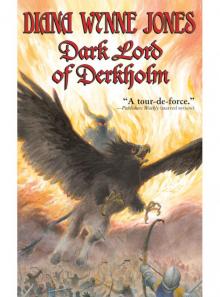 Dark Lord of Derkholm
Dark Lord of Derkholm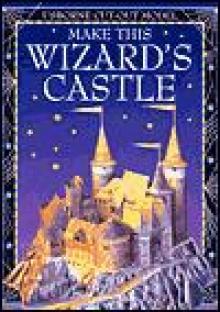 Castle in the Air
Castle in the Air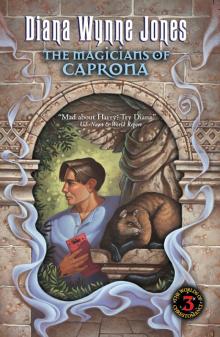 The Magicians of Caprona
The Magicians of Caprona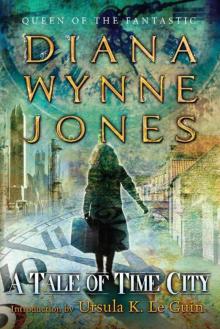 A Tale of Time City
A Tale of Time City The Lives of Christopher Chant
The Lives of Christopher Chant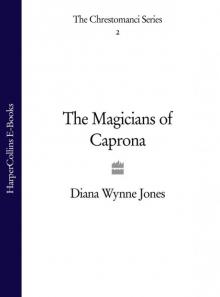 The Magicians of Caprona (UK)
The Magicians of Caprona (UK)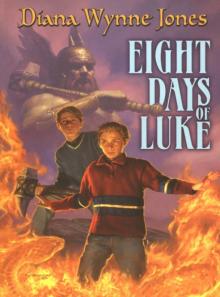 Eight Days of Luke
Eight Days of Luke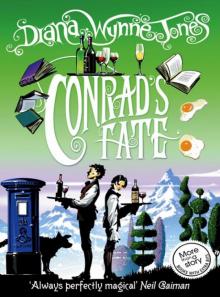 Conrad's Fate (UK)
Conrad's Fate (UK)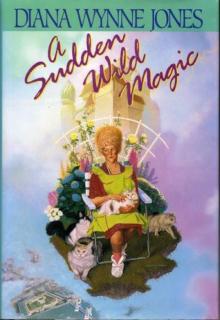 A Sudden Wild Magic
A Sudden Wild Magic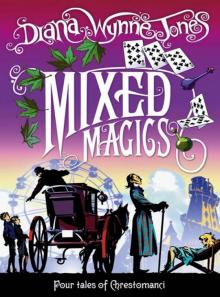 Mixed Magics (UK)
Mixed Magics (UK)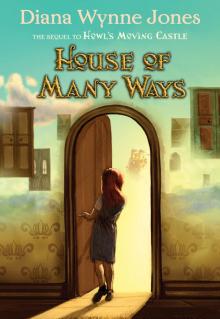 House of Many Ways
House of Many Ways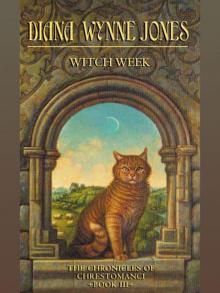 Witch Week (UK)
Witch Week (UK)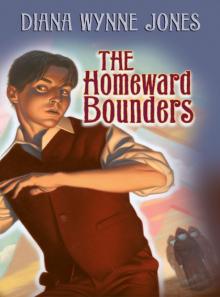 The Homeward Bounders
The Homeward Bounders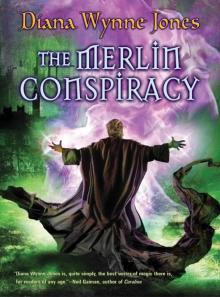 The Merlin Conspiracy
The Merlin Conspiracy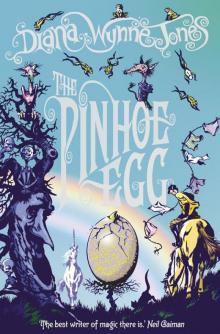 The Pinhoe Egg (UK)
The Pinhoe Egg (UK)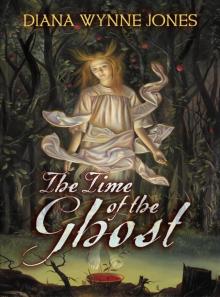 The Time of the Ghost
The Time of the Ghost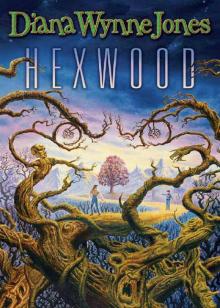 Hexwood
Hexwood Enchanted Glass
Enchanted Glass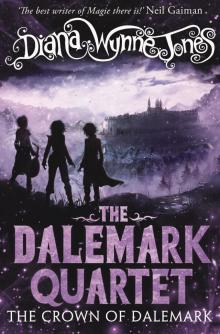 The Crown of Dalemark (UK)
The Crown of Dalemark (UK)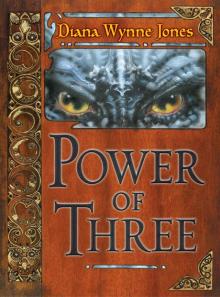 Power of Three
Power of Three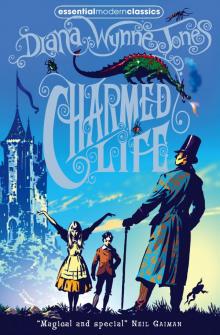 Charmed Life (UK)
Charmed Life (UK)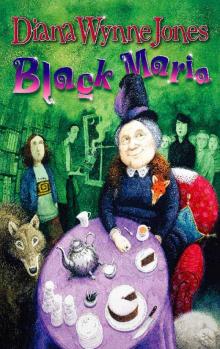 Black Maria
Black Maria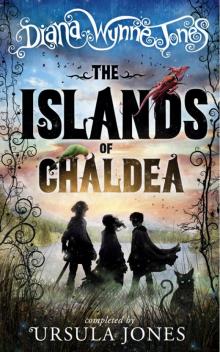 The Islands of Chaldea
The Islands of Chaldea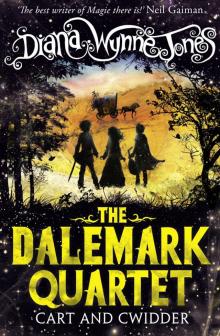 Cart and Cwidder (UK)
Cart and Cwidder (UK)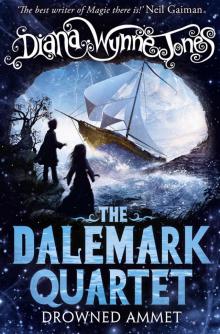 Drowned Ammet (UK)
Drowned Ammet (UK)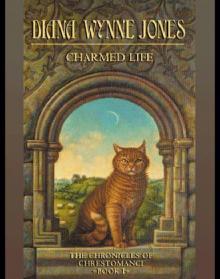 Charmed Life
Charmed Life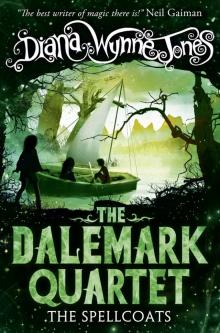 The Spellcoats (UK)
The Spellcoats (UK)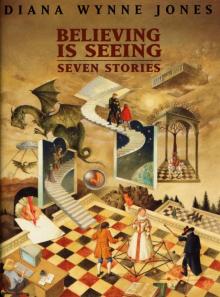 Believing Is Seeing
Believing Is Seeing Samantha's Diary
Samantha's Diary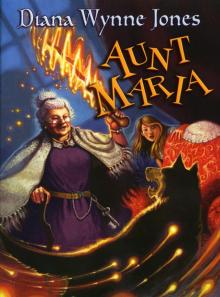 Aunt Maria
Aunt Maria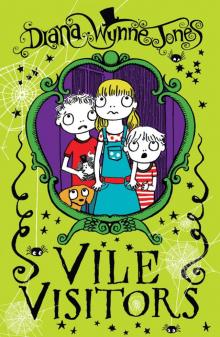 Vile Visitors
Vile Visitors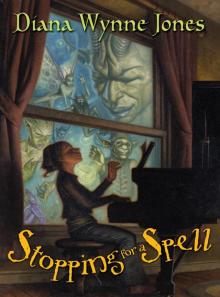 Stopping for a Spell
Stopping for a Spell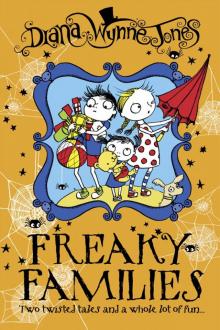 Freaky Families
Freaky Families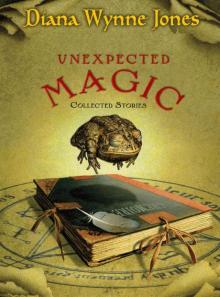 Unexpected Magic
Unexpected Magic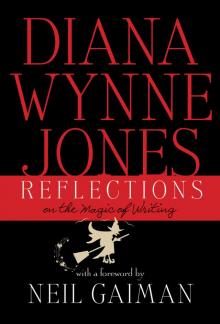 Reflections
Reflections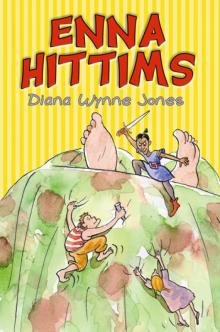 Enna Hittms
Enna Hittms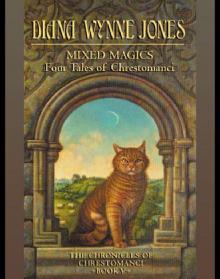 Mixed Magics: Four Tales of Chrestomanci
Mixed Magics: Four Tales of Chrestomanci